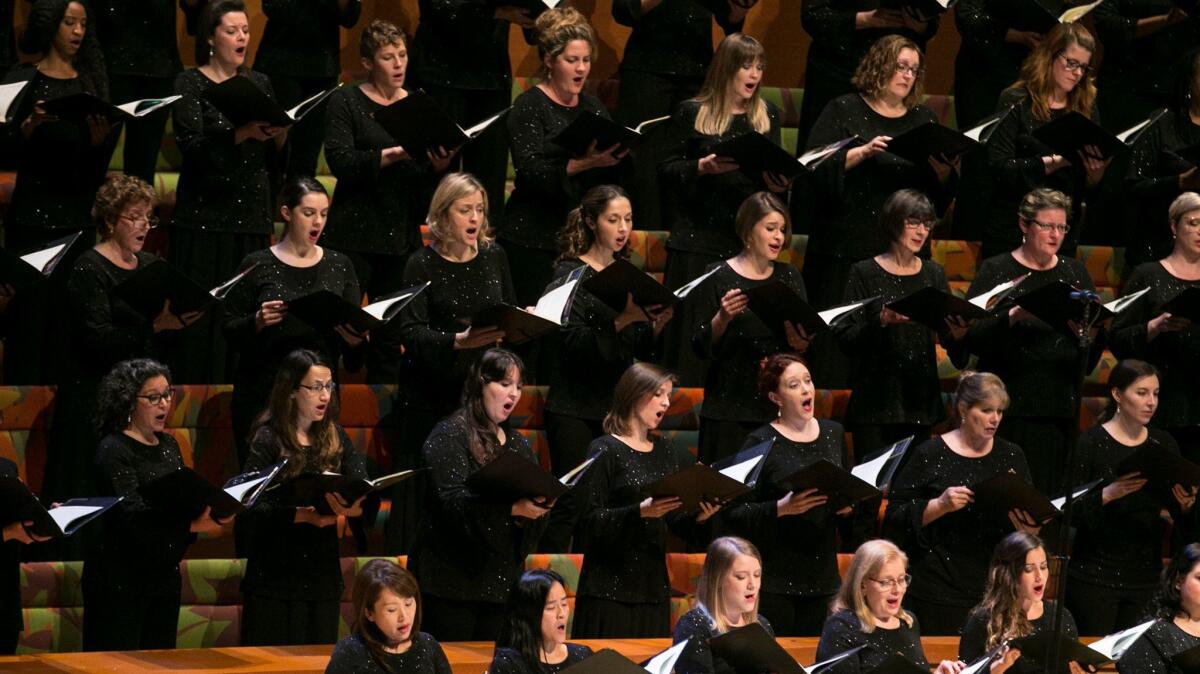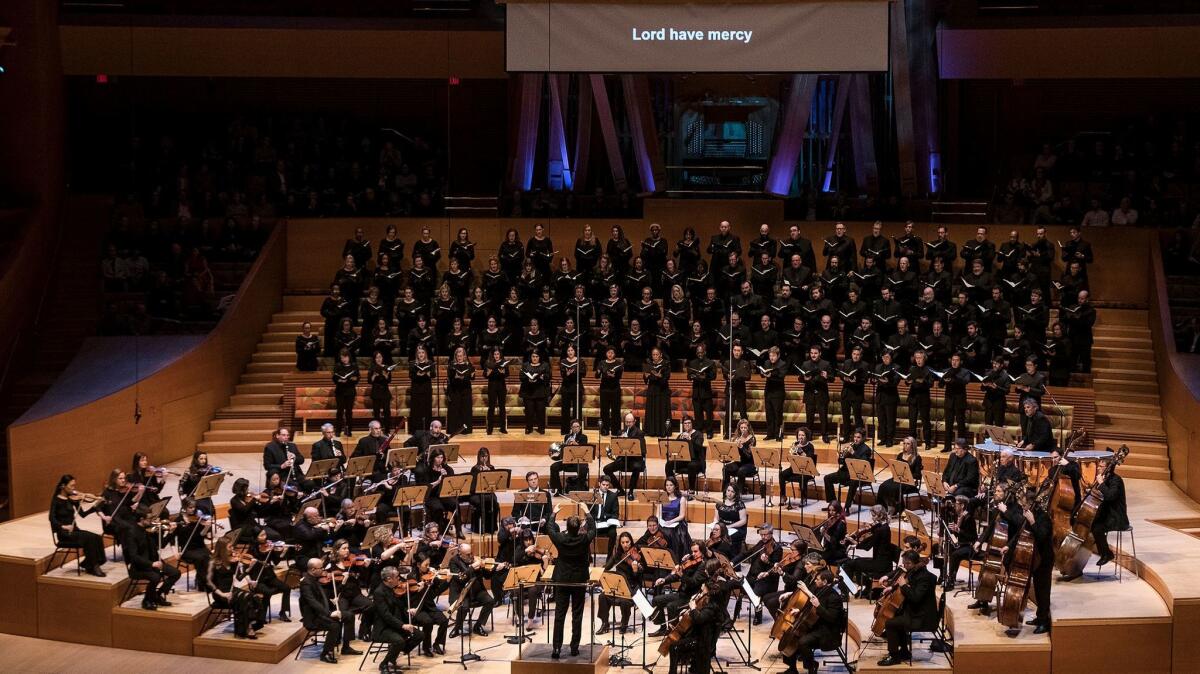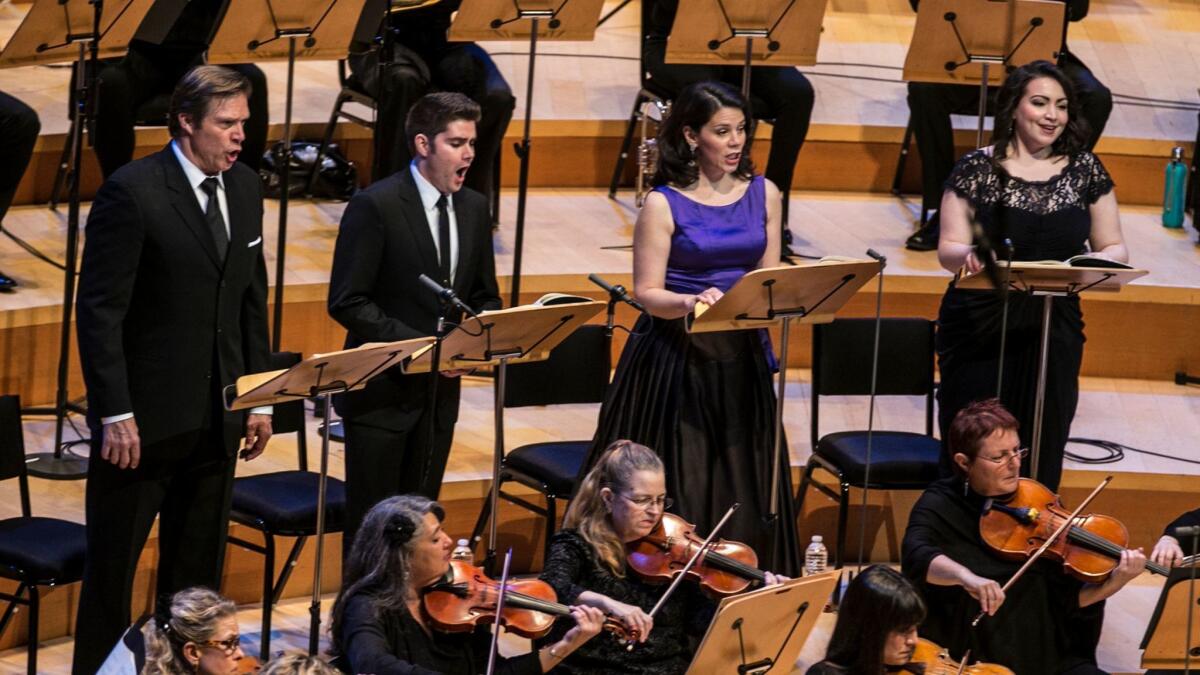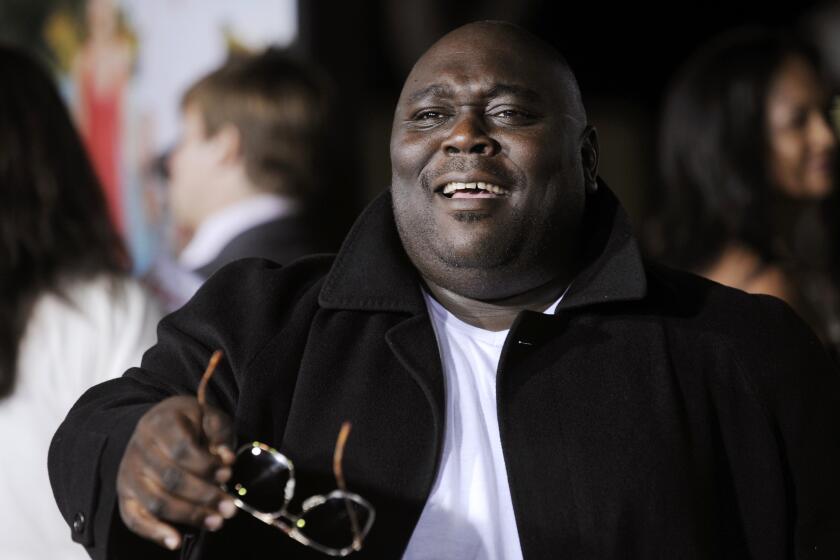Review: With a nod to the L.A. protests, Master Chorale rips into Beethoven’s search for peace amid chaos

- Share via
Back in January 1973, when the U.S. was still entangled in Vietnam and President Richard Nixon was inaugurated, a protest came in the form of a “counter-inaugural” concert at the Washington National Cathedral. Leonard Bernstein led a choir and a pickup orchestra in Haydn’s “Mass in Time of War,” whose Agnus Dei section reverberated with the desperate plea, “Dona nobis pacem” — “Grant us peace!”
If past be prologue, then the weekend felt like 1973 all over again, what with another contentious inauguration, protest marches and arts organizations whose programming — though determined way before the election returns came in — tapped into the energy of the streets. So it seemed with the Los Angeles Master Chorale in Walt Disney Concert Hall on Sunday night, where in Beethoven’s formidable “Missa Solemnis,” the war-like outbursts of drums and pleas for peace in the Agnus Dei section effectively echoed those in the Haydn mass.
Grant Gershon, the Master Chorale’s artistic director, was tuned into the moment without a doubt. “This is an extraordinary weekend in this city,” he proclaimed to loud applause, before going on to pinpoint certain passages of the mass: the drums representing the sound of war approaching, orchestral chaos suggesting “the world careening out of control,” and the piece’s quizzical ending.

Maybe it was the power of suggestion at work here, but it seemed as if the most compelling parts of the Master Chorale performance were precisely the ones that Gershon previewed in his talk — the above passages in the Agnus Dei and the mystical sweep of the orchestra near the close of the Credo. Otherwise, it was a solid, often fervent enough rendering of a piece that notoriously stretches the vocal resources of chorus and vocal soloists alike to almost unreasonable limits.
SIGN UP for the free Essential Arts & Culture newsletter »
The last time the Master Chorale performed “Missa Solemnis” was only two years ago with Michael Tilson Thomas and the Los Angeles Philharmonic. That one was an experimental multimedia extravaganza, with video meteors whizzing by, an alphabet soup of letters projected onto a screen, staged movements by the singers, and such. All of that was gone in this straight-ahead, traditional concert presentation, but the Master Chorale’s bright, clear timbre, unfazed by Beethoven’s high-wire demands, remained.
Gershon’s tempos leaned toward the fast end of the spectrum, faring best when he was barreling down passages like the final stretch of the Gloria. But he was also sensitive enough to produce an exquisite fade to a hush before letting it rip in the Credo’s description of the resurrection.

The soloist quartet — soprano Raquel González, mezzo-soprano Allyson McHardy, tenor Arnold Livingston Geis and baritone Rod Gilfry — was recessed within the orchestra instead of placed up front, and at times early on they couldn’t be heard clearly above the massive blend of the orchestra and chorus. In any event, the standout voice here was the veteran Gilfry — low-key but with underlying virile power.
For Gershon, who will step in for Joana Carneiro in John Adams’ also-formidable “The Gospel According to the Other Mary” with the San Francisco Symphony next month, “Missa Solemnis” was a good start to another eventful year.
Follow The Times’ arts team @culturemonster.
ALSO
In L.A. march, Grand Park performs well with crowds; Metro and Pershing Square, not so much
Los Angeles artists speak out on why they joined the march for women
A free comic offers artist ‘Resist!’-ance at the Hammer Museum
More to Read
The biggest entertainment stories
Get our big stories about Hollywood, film, television, music, arts, culture and more right in your inbox as soon as they publish.
You may occasionally receive promotional content from the Los Angeles Times.










